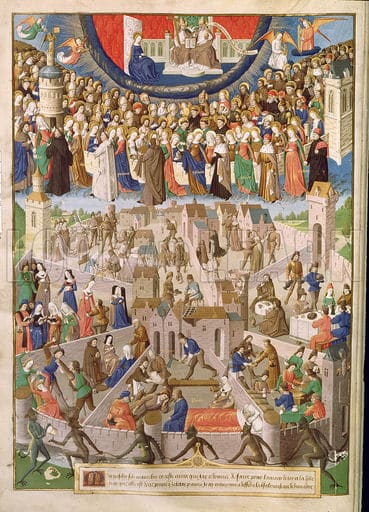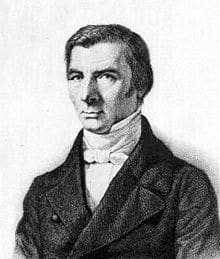The Purpose of Law in a Free Society

On August 24, 410 A.D., an army of the Germanic Visigoth tribe invaded and sacked Rome. The attack shocked people of the Mediterranean world and many began to believe that the ancient gods of Rome were punishing Romans for abandoning them in favor of the Jewish God, Jesus of Nazareth. In response to this furor, St. Augustine, a Christian bishop in North Africa, in what today is the country of Algeria, produced one of the most important books ever written. The book is The City of God, in which Augustine advances a philosophy of history that dominated western thought for more than a thousand years. He decisively de-divinized Roman history, and with it swept away the gods of Rome. Importantly, he describes human societies as comprised of two incompatible cities: the city of God, and the city of man. At the beginning of this book, the first of more than a thousand pages, Augustine introduces the idea of the city of man saying: “Therefore I cannot refrain from speaking about the city of this world, a city which aims at dominion, which holds nations in enslavement, but is itself dominated by that very lust of domination.” Augustine wrote in Latin, and in that language the “lust of domination” has a lyrical sound: libido dominandi. This affliction is a product of inordinate self-love, which Augustine takes to be the defining characteristic of the city of man.

Augustine writes that we can distinguish the inhabitants of the two cities in the world by considering what they most love. In the city of God, people love God, and because God is not finite, there is no scarcity in his love, and thus residents of the city of God are not in competition with one another for possession of a scarce good. In the city of man, each one loves himself above all, and this is what leads to suspicion, envy, and conflict because people must compete for the limited positions of wealth, status, and power. This situation, Augustine argues, aggravates the affliction many people have of lusting to dominate others. However, God has determined that the two cities will exist side-by-side until the end of the age, when God will put an end to human affairs and inaugurate the age to come. In the meantime, there will be clashes between the two cities owing to the uncontrollable urges of the residents of the city of man to dominate, control, and determine how others will think, speak, and live, and certainly to extract revenues from them. This is what happened in Rome, Augustine argues, and it will mark human history until its end.

Is it possible, then, to govern ourselves in a way that restricts the ability of those seeking domination to get their way? One of the best answers given to this question was written in 1850 by a French economist named Frederic Bastiat. In The Law, Bastiat offers a clear and elegant defense of law as the bulwark of liberty. He begins his treatment of law observing that we human beings possess the gift of life from God Who has entrusted us with the work of “preserving, developing, and perfecting” our lives. This work requires that we apply our faculties to the development of the natural resources around us in order to produce the various goods needed to accomplish the task God has given us. “Life, faculties, production—in other words, individuality, liberty, property—this is man.”[i] Since we are required to govern ourselves, we must organize for this purpose and make laws for our good order. The goal of society, including government, is human flourishing. So law is, to paraphrase Bastiat, social organization in defense of individual liberty and property rights.
“Each of us has a natural right—from God—to defend his person, his liberty, and his property. These are the three basic requirements of life, and the preservation of any one of them is completely dependent upon the preservation of the other two. For what are our faculties but the extension of our individuality? And what is property but an extension of our faculties? If every person has the right to defend even by force—his person, his liberty, and his property, then it follows that a group of people have the right to organize and support a common force to protect these rights constantly. Thus the principle of collective right—its reason for existing, its lawfulness—is based on individual right. And the common force that protects this collective right cannot logically have any other purpose or any other mission than that for which it acts as a substitute. Thus, since an individual cannot lawfully use force against the person, liberty, or property of another individual, then the common force—for the same reason—cannot lawfully be used to destroy the person, liberty, or property of individuals or groups.”
Bastiat argues that no government can be justified in using law for any purposes but to protect individuals, their liberty, and their property. Loyalty to a political order comes naturally to people who know that their government exists solely for the purpose of stopping interferences with the rights of individuals, so that everyone is clear that his person will be respected, his labor will be exercised freely, and the product of his hands will be his own. So the function of law is negative in the sense that it exists to say no. It exists to say no to every attempt by any faction that might form in society to exploit the persons, liberty, or property rights of others. Thus a just government is one that both forbids and punishes acts of injustice committed upon any member of society.
Bastiat observes that law has been perverted, and he offers as the causes of this perversion two phenomena: “stupid greed and false philanthropy.” It is often remarked that people, like electrons on a wire, will seek the path of least resistance. There are people who will live off the labor of others if given a chance. In defense of this assertion, Bastiat offers in evidence: “the incessant wars, mass migrations, religious persecutions, universal slavery, dishonesty in commerce, and monopolies. This fatal desire has its origin in the very nature of man—in that primitive, universal, and insuppressible instinct that impels him to satisfy his desires with the least possible pain.”Herein lies the inevitability of the corrupt and self-serving abuse that will be made of any form of power held in society by some over others. We are able to satisfy our needs and desires only by ceaseless labor, that is, by the constant application of our faculties to natural resources. This process, Bastiat points out, is the origin of property. The opposite process, that of living off the labor of others, is the origin of plunder, which Bastiat understands to be any act that violates the property rights of an individual. Since labor is often a form of pain, men are drawn to plunder whenever it is easier than labor. When this situation is perceived, Bastiat contends, “neither religion nor morality can stop it.” What stops plunder is when it becomes more painful and dangerous than labor.
In reckoning with this, it is important to understand that an act is not made just by being legislated. Laws can be unjust, and so can be the people who make them. Yet in a situation in which unjust laws are made to benefit some at the expense of others, those benefitting from the law must seek to convince those being plundered that the laws are just and thus to be obeyed. To demonstrate this, Bastiat uses the example of universal suffrage. Universal suffrage, argues Bastiat, is in fact universal socialism, since everyone has the right to vote for a share of the property of others, and a vote is thought to legitimate whatever a majority decides. This had become a sacred dogma which people are enjoined never to question or to doubt. When someone votes, his vote affects everyone, and so it is an important question regarding the vote whether it is a responsibility that is suited to everyone (which is what “universal” means). It is the presence among us of millions of people adorned with a right to vote, but not with an understanding of what that means, that gives opportunity to politicians hoping to exploit this irresponsibility for the opportunities it offers to plunder. The means by which this is done is to share some of the swag with the electorate who make it happen. So, if some people lack the capacity to carry the vote responsibly, how is this to be determined? Bastiat’s answer is that the extent of the franchise doesn’t have to be determined so long as we do not have a government with power to act as it pleases. “In fact, if law were restricted to protecting all persons, all liberties, and all properties; if law were nothing more than the organized combination of the individual’s right to self-defense; if law were the obstacle, the check, the punisher of all oppression and plunder—is it likely that we citizens would then argue much about the extent of the franchise? If the law were confined to its proper functions, everyone’s interest in the law would be the same. Is it not clear that, under these circumstances, those who voted could not inconvenience those who did not vote?
“When law is properly understood, there is no plundering use to which it legitimately can be put. So all perversions of law must be eliminated with dispatch, and we have from Bastiat a clear test of perverse laws. See if the law takes from some persons what belongs to them, and gives it to other persons to whom it does not belong. See if the law benefits one citizen at the expense of another by doing what the citizen himself cannot do without committing a crime. Then abolish this law without delay, for it not only is an evil itself, but also it is a fertile source for further evils because it invites reprisals. If such a law—which may be an isolated case—is not abolished immediately, it will spread, multiply, and develop into a system.”
Bastiat notes that politicians in his time seem agitated by disparities in wealth and conditions of living, declaring that government must do something to remedy these “injustices,” while failing to acknowledge the politicians’ involvement in creating them. Perhaps the politician should consider this proposition: “Since all persons seek well-being and perfection, would not a condition of justice be sufficient to cause the greatest efforts toward progress, and the greatest possible equality that is compatible with individual responsibility?”
What Bastiat analyses in The Law is law as an organizing force in a society devoted to human flourishing. In this understanding, law rests, we may say, on human nature, which is moral and intellectual, and its purpose is to protect individuals in their communities as they live their lives and govern themselves among family, friends, economic associates, churches and other voluntary associations. It is an ideal, but not for that reason unachievable, that can serve for us as a guide for the work of seeking to make law ever more just.
Posted on: September 15, 2022


